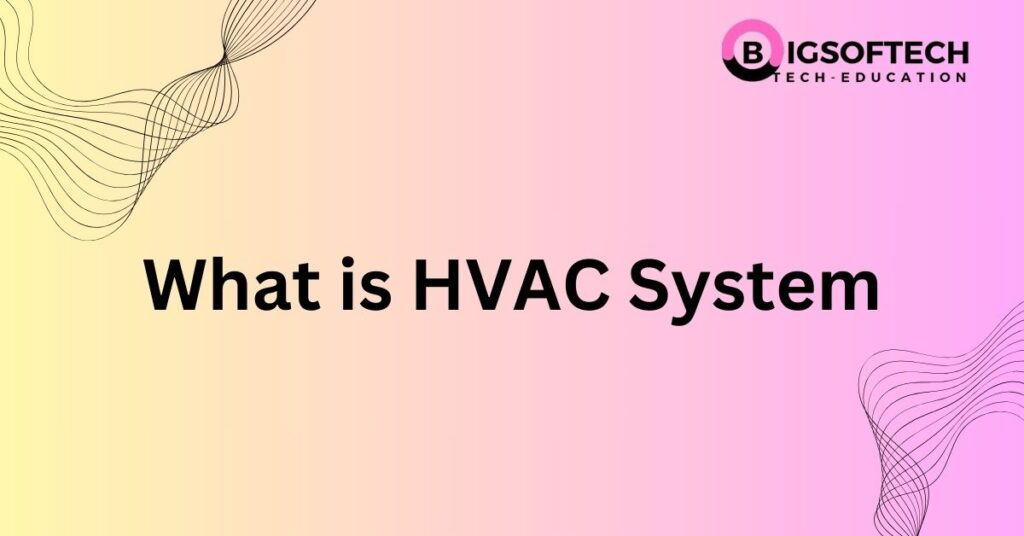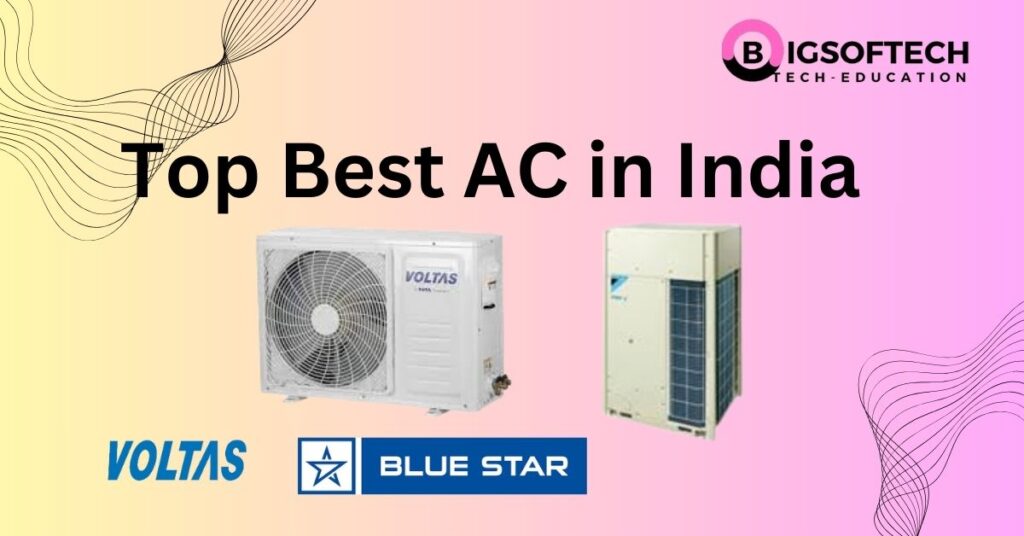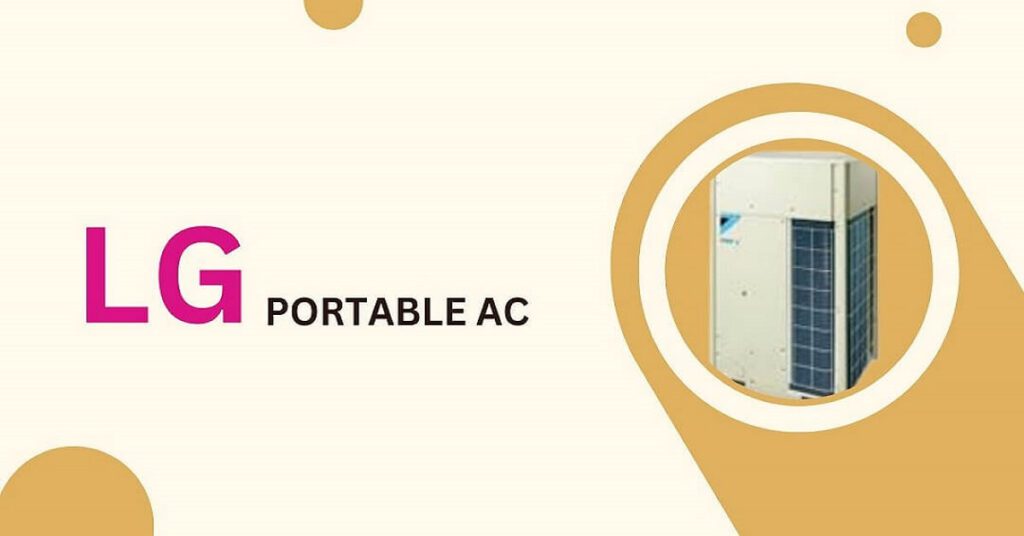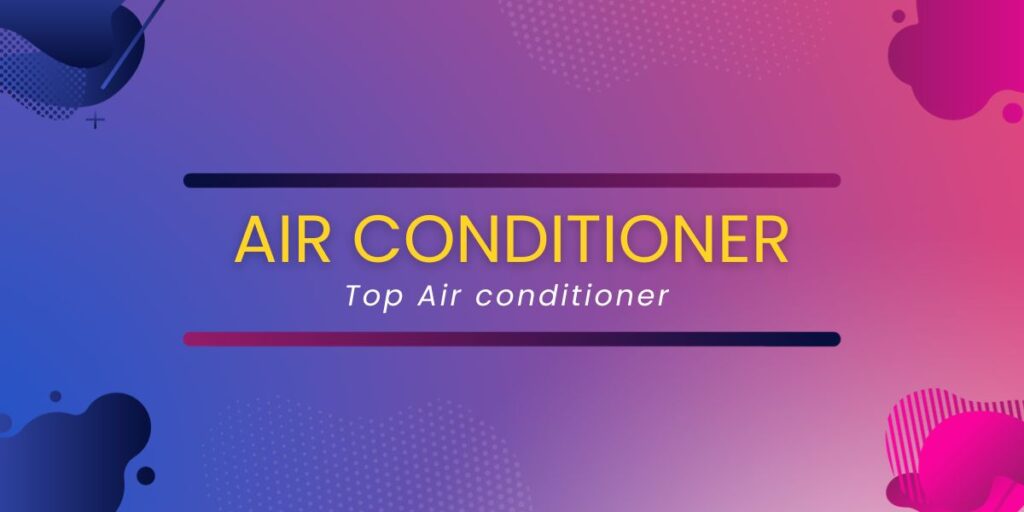HVAC system stands for Heating, Ventilation, and Air Conditioning (HVAC) systems are crucial components in modern homes, offices, and industrial buildings. These systems are designed to regulate the temperature, humidity, and air quality inside a building. HVAC systems are responsible for ensuring comfortable living and working environments, and they are essential for maintaining the health and well-being of occupants.
In this article, we will discuss what an HVAC system is, how it works, and its importance in indoor comfort.
What is an HVAC Systems
HVAC stands for Heating, Ventilation, and Air Conditioning. An HVAC system is a mechanical system designed to regulate the indoor temperature, humidity, and air quality of a building. These systems are commonly used in residential, commercial, and industrial buildings to provide a comfortable living or working environment.
The primary function of an HVAC system is to control the temperature inside a building. This is achieved through the use of heating and cooling systems, which work together to maintain a comfortable temperature throughout the year. HVAC systems also help regulate the humidity levels inside a building, ensuring that the air is neither too dry nor too humid. This is important because excessively dry or humid air can lead to health problems and discomfort.
Components of an HVAC System
An HVAC system is made up of three main components: heating, ventilation, and air conditioning.
Heating
The heating component of an HVAC system is responsible for providing warmth to a building. This is typically achieved through the use of a furnace, which heats air and distributes it through a network of ducts and vents. The furnace can be powered by electricity, natural gas, oil, or propane.
Ventilation
Ventilation is the process of exchanging indoor air with outdoor air. This helps to remove pollutants and moisture from the air, which can lead to health problems and discomfort. HVAC systems use a network of ducts and vents to circulate air throughout a building and maintain a healthy indoor environment.
Air Conditioning
The air conditioning component of an HVAC system is responsible for cooling a building. This is typically achieved through the use of a compressor, which removes heat from the air and distributes it through a network of ducts and vents. The air conditioning system can be powered by electricity or gas.
How Does an HVAC Systems Work?
HVAC systems work by using a combination of heating, ventilation, and air conditioning to regulate the indoor environment. The system is controlled by a thermostat, which monitors the temperature and humidity inside a building and adjusts the HVAC system accordingly.
Heating Cycle
During the heating cycle, the thermostat senses that the indoor temperature has dropped below the desired level and sends a signal to the furnace. The furnace then ignites and heats the air, which is then distributed throughout the building via a network of ducts and vents.
Cooling Cycle
During the cooling cycle, the thermostat senses that the indoor temperature has risen above the desired level and sends a signal to the air conditioning system. The air conditioning system then removes heat from the indoor air and distributes cool air throughout the building via a network of ducts and vents.
Types of HVAC Systems
There are several types of HVAC systems, and each has its unique features and advantages. Here are the most common
1. Split AC in HVAC Systems
A split HVAC system is the most common type of HVAC system used in residential and commercial buildings. This system has two main components: an outdoor unit (condenser) and an indoor unit (evaporator). The outdoor unit contains the compressor, while the indoor unit contains the air handler. The two units are connected by refrigerant lines.
2. Packaged AC in HVAC Systems
A packaged HVAC system is an all-in-one system that contains all the components of a split system in one cabinet. This system is commonly used in commercial buildings and is ideal for areas where space is limited. Packaged HVAC systems are available in different configurations, including rooftop units, through-the-wall units, and floor-mounted units.
3. Heat Pump in HVAC Systems
A heat pump HVAC system is a type of split system that can provide both heating and cooling. This system works by transferring heat from one place to another. During the summer, the heat pump extracts heat from the indoor air and transfers it outside. During the winter, the heat pump extracts heat from the outdoor air and transfers it inside.
4. Ductless System
A ductless HVAC system is also known as a mini-split system. This system is similar to a split system, but it does not require ductwork. The indoor unit is mounted on the wall, and it is connected to the outdoor unit by a refrigerant line. Ductless HVAC systems are ideal for areas where ductwork is not possible or where the existing ductwork is in poor condition.
5. Geothermal in HVAC Systems
A geothermal HVAC system uses the earth’s natural heat to provide heating and cooling. This system works by circulating water through pipes buried in the ground. During the summer, the water absorbs heat from the indoor air and transfers it to the ground. During the winter, the water absorbs heat from the ground and transfers it to the indoor air.
6. Radiant in HVAC Systems
A radiant HVAC system is a type of heating system that uses radiant heat to warm a space. This system works by heating the floor, walls, or ceiling, and the heat radiates into the room. HVAC systems are commonly uses In homes with tile or concrete floors, Radiant
7. Hybrid HVAC System
A hybrid HVAC system is a combination of two or more types of HVAC systems. This design provides the best of both worlds, depending on the weather conditions. For example, a hybrid HVAC system may use a heat pump for heating and a gas furnace for backup heating during extremely cold temperatures.
Importance of Proper HVAC Systems Maintenance
Heating, ventilation, and air conditioning (HVAC) systems play a crucial role in maintaining indoor air quality, thermal comfort, and overall well-being in both residential and commercial settings. Regular HVAC maintenance is essential to ensure optimal system performance, energy efficiency, and longevity. In this article, we will discuss the importance of proper HVAC system maintenance and its benefits.
What is HVAC Systems Maintenance?
HVAC system maintenance refers to the process of inspecting, cleaning, repairing, and servicing various components of the HVAC system. It involves routine tasks such as filter replacement, duct cleaning, coil cleaning, lubrication, and system testing to ensure optimal performance and energy efficiency.
Benefits of Proper HVAC Systems Maintenance
Proper HVAC system maintenance offers several benefits, including:
1. Improved Energy Efficiency
A well-maintained HVAC system operates more efficiently, reducing energy consumption and lowering utility bills. According to the U.S. Department of Energy, HVAC systems account for nearly half of a building’s energy consumption. By performing regular maintenance, you can optimize the system’s efficiency, saving money and reducing your carbon footprint.
2. Extended Equipment Lifespan
Proper maintenance helps extend the lifespan of HVAC equipment. Neglecting maintenance can lead to premature equipment failure, resulting in costly repairs or replacements. Routine maintenance ensures that the system operates smoothly, preventing wear and tear, and prolonging its lifespan.
3. Improved Indoor Air Quality
A clean and well-maintained HVAC system improves indoor air quality by removing contaminants, allergens, and pollutants from the air. Regular maintenance involves cleaning and replacing filters, ducts, and coils, which helps prevent the buildup of dirt, dust, and debris. This results in cleaner air and a healthier living environment.
4. Enhanced Comfort
Proper maintenance ensures that the HVAC system provides consistent and reliable heating and cooling, enhancing indoor comfort. It also helps prevent system breakdowns and reduces the risk of emergency repairs, ensuring that your home or business remains comfortable year-round.
Signs of HVAC Systems Neglect
Neglecting HVAC system maintenance can lead to several problems, including:
1. Poor Indoor Air Quality
Neglected HVAC systems can harbor contaminants, allergens, and pollutants that negatively impact indoor air quality. Symptoms of poor indoor air quality include respiratory problems, headaches, fatigue, and allergies.
2. Reduced Energy Efficiency
Dirty filters, clogged ducts, and poorly maintained equipment can reduce HVAC system efficiency, leading to higher energy bills.
3. Frequent Breakdowns
Neglected HVAC systems are more prone to breakdowns, leading to costly repairs and inconveniences.
Tips for Proper HVAC Systems Maintenance
Here are some tips for proper HVAC system maintenance:
1. Replace Air Filters
Replace air filters every 1-3 months to ensure proper airflow and prevent the buildup of dirt and debris.
2. Clean Air Ducts
Have your air ducts cleaned every 3-5 years to prevent the buildup of dirt, dust, and debris.
3. Schedule Annual Maintenance
Schedule annual maintenance with a professional HVAC technician to inspect, clean, and service your system.
4. Monitor Energy Consumption
Monitor your energy bills and look for any unusual spikes in consumption, which may indicate a problem with your HVAC system.
Energy Efficiency
Energy efficiency is a critical factor to consider when it comes to HVAC systems. Heating, ventilation, and air conditioning (HVAC) systems consume a significant amount of energy, accounting for up to 50% of the energy usage in commercial buildings and up to 40% in residential homes. Therefore, improving the energy efficiency of HVAC systems can have a significant impact on reducing energy consumption, costs, and greenhouse gas emissions.
There are several ways to increase the energy efficiency of HVAC systems. One should upgrade to a more efficient HVAC system that is designed to use less energy while still providing optimal indoor comfort. Another should install programmable thermostats that allow for precise temperature control.
Proper Maintenance
Proper maintenance of HVAC systems is also crucial for ensuring optimal energy efficiency. Regular cleaning and inspections of the system’s components, including the filters, coils, and ductwork, can improve the system’s efficiency and reduce the workload on the system. This can result in lower energy consumption, improved indoor air quality, and increased comfort for building occupants.
Common HVAC Systems Problems.
HVAC systems are an integral part of our homes and buildings, providing us with comfortable indoor temperatures throughout the year. However, like any mechanical system, HVAC systems can develop problems that can affect their performance and efficiency. Here are some of the most common HVAC system problems:
Dirty or clogged filters:
-
Dirty or clogged filters can restrict airflow, reducing the system’s efficiency and causing it to work harder than necessary.
Thermostat problems:
-
Faulty thermostats can cause the HVAC system to operate incorrectly or not at all, leading to discomfort and energy waste.
Refrigerant leaks:
-
Low refrigerant levels can cause the HVAC system to function improperly, resulting in decreased cooling capacity, increased energy consumption, and higher utility bills.
Electrical problems:
-
Electrical issues, such as faulty wiring or blown fuses, can cause the HVAC system to stop working entirely.
Ignition or pilot control problems:
-
Problems with the ignition or pilot control can prevent the furnace or boiler from working correctly, leading to inadequate heating and discomfort.
Ductwork problems:
-
Damaged or leaky ductwork can cause heated or cooled air to escape, resulting in energy waste and decreased indoor comfort.
Overheating:
- Overheating can cause the HVAC system to shut down, leading to increased energy consumption and system wear and tear.
TXV Problem:
- Clogging: Dirt, debris, or other contaminants can accumulate in the valve, causing it to become clogged and reducing the flow of refrigerant. This can result in decreased cooling capacity, higher energy consumption, and increased system wear and tear. Refrigerant leaks: Leaks in the refrigerant line or the valve itself can cause the HVAC system to lose refrigerant, leading to decreased cooling capacity and increased energy consumption. Frozen evaporator coil: If the TXV is not functioning correctly, it can cause the evaporator coil to freeze, reducing the system’s cooling capacity and increasing energy consumption.
Conclusion
In conclusion, proper HVAC system maintenance is essential for maintaining a healthy and comfortable living environment. Neglecting maintenance can lead to poor indoor air quality, reduced energy efficiency, and frequent breakdowns, resulting in costly repairs and inconveniences. By following the tips mentioned in this article and scheduling regular maintenance with a professional HVAC technician, you can optimize your system’s performance, extend its lifespan, and save money on energy bills.
It is important to remember that HVAC system maintenance is not a one-time task but an ongoing process. Regular inspections, cleaning, and servicing are necessary to ensure that the system operates efficiently and effectively. By investing in proper maintenance, you can enjoy a healthy and comfortable indoor environment while reducing your carbon footprint and saving money on utility bills.




